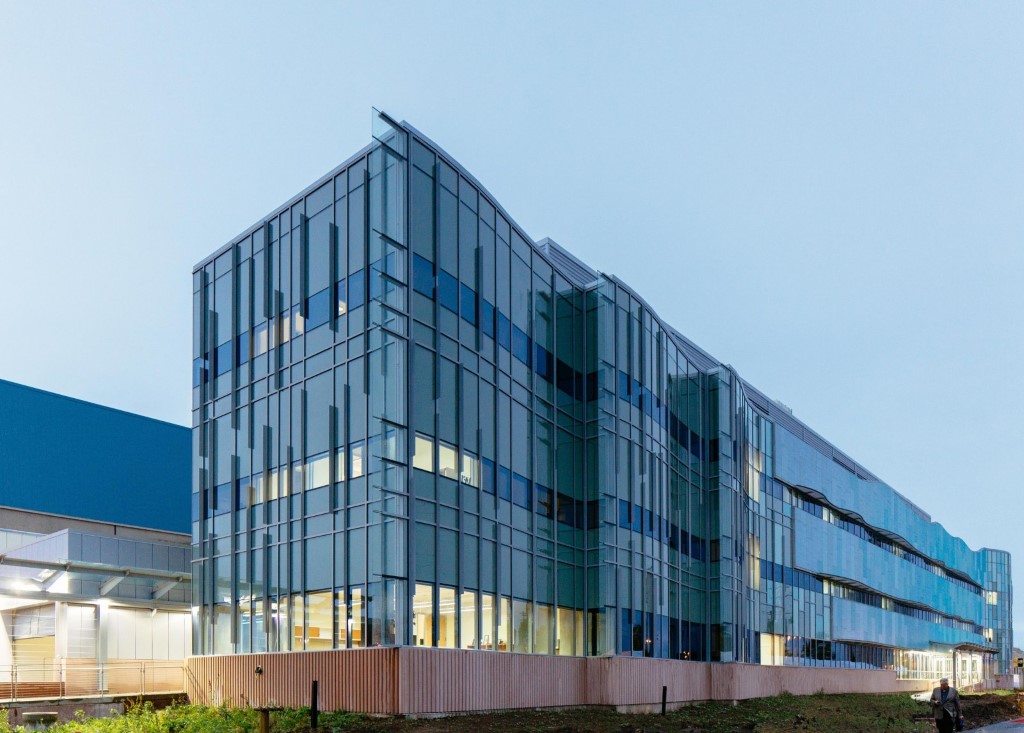Can We Keep the Great Lakes Great?
$10 million plan for fresh water collaborative at 13 UW campuses must be funded.

UWM School of Freshwater Sciences, 600 E. Greenfield Ave. File photo courtesy of the City of Milwaukee Department of City Development.
Last Friday at UW-Whitewater the Joint Finance Committee heard a pitch for about $10 million in the budget for the University of Wisconsin System over the next two years to create a fresh water collaborative across all 13 UW campuses. It was a relatively small request, but arguably the most important of dozens of pleas for more money.
Wisconsin is blessed with great fresh water resources, including the Mississippi River system and the Great Lakes. We are at the center of the fresh water world, but we have been largely indifferent to keeping it great.
The invasions of lampreys and zebra mussels caused horrendous damage. They were precursors to the invasion of quagga mussels that now cover much of the floor of the five lakes. They are gobbling up nutrients that native species depend upon, and nobody seems to know what to do about preserving the commercial fisheries.
The Friday night fish fry is one early casualty.
What was missing at the time the seaway was built was a thorough analysis, both economic and environmental of the future impact of the seaway. There was not enough brain power at work when the US Army Corps of Engineers concocted this breach of the barrier between the oceanic system and the fresh water systems in the eastern half of the country.
The Fresh Water Collaborative of Wisconsin proposes to pull together the existing brain power that is housed in pockets across the 13 UW campuses, like Madison, Superior and Green Bay.
The collaborative would coordinate work on the biggest fresh water challenges in Wisconsin and the world. Its scientists and economists would have looked at the proposed St. Lawrence project and would have said, “Are you crazy?”
The collaborative would be led by UW-Milwaukee, which is already home to the School of Freshwater Sciences that grants baccalaureates, masters and doctorates in fresh water technologies.
The collaborative could keep Milwaukee and Wisconsin at the leading edge of a cluster that will prove to be as important as clusters around arable land, air and oil.
Members of Joint Finance were there to listen Friday; therefore they made no comments, but they are all water users and rely on the Great Lakes, interior lakes and river systems for their livelihoods and recreation.
They have a tough job in allocating the state’s public dollars, but it is hard to imagine what initiative in the state budget could touch them more deeply.
Incidentally, among dozens of new programs called for by testifying citizens, none called for cost reductions.
John Torinus is the chairman of Serigraph Inc. and a former Milwaukee Sentinel business editor who blogs regularly at johntorinus.com.
Op-Ed
-
Wisconsin Candidates Decry Money in Politics, Plan to Raise Tons of It
 Dec 15th, 2025 by Ruth Conniff
Dec 15th, 2025 by Ruth Conniff
-
Trump Left Contraceptives to Rot; Women Pay the Price
 Dec 8th, 2025 by Dr. Shefaali Sharma
Dec 8th, 2025 by Dr. Shefaali Sharma
-
Why the Common Council’s Amended Budget is Good Policy for Milwaukee
 Nov 20th, 2025 by Alds. Marina Dimitrijevic and Russell W. Stamper, II
Nov 20th, 2025 by Alds. Marina Dimitrijevic and Russell W. Stamper, II



















